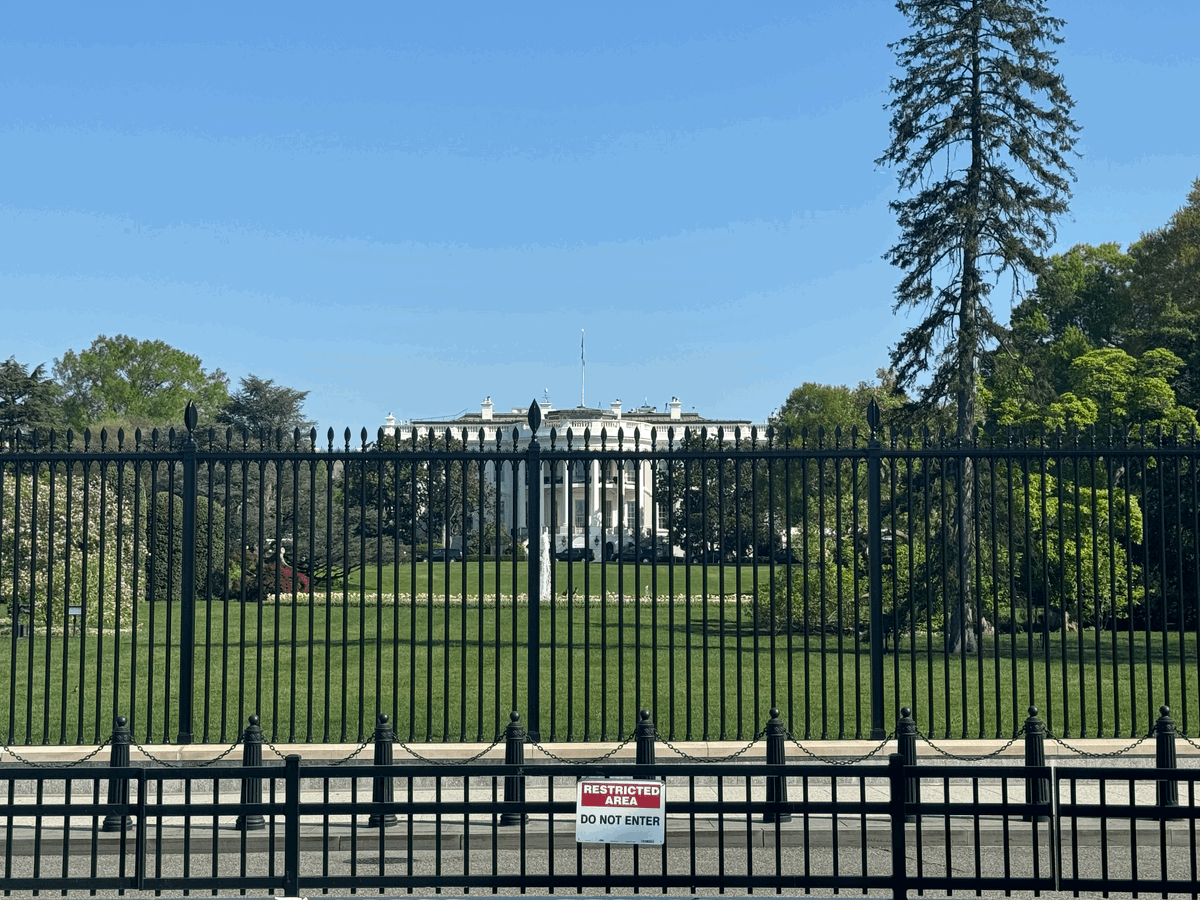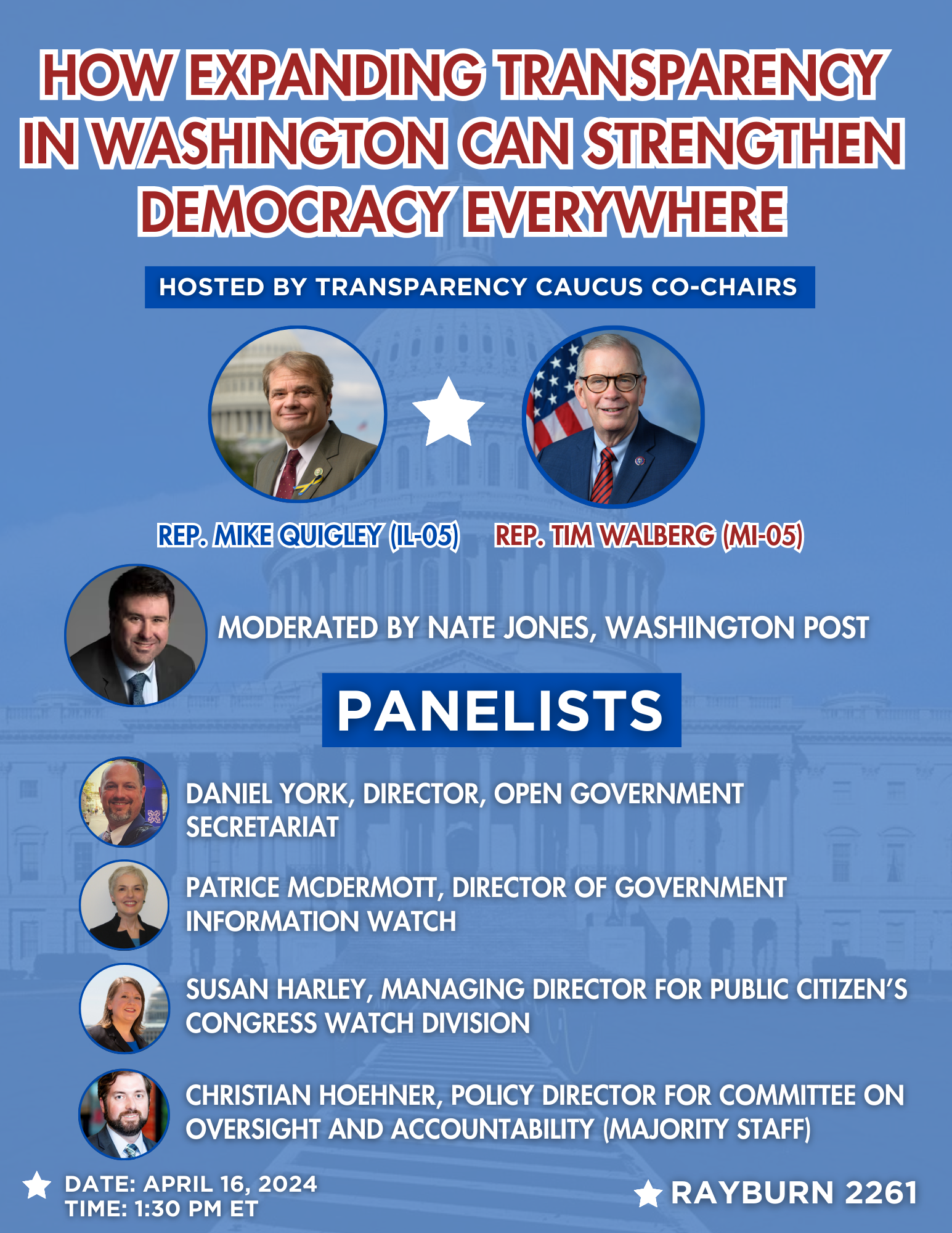Will (overdue) Congressional interest change U.S. participation in open government?

Hello from Washington, where the climate already resembles New England summer more than spring. Life in DC, redux.
Alex Howard here, back in your inbox with another edition of Civic Texts. If you find these valuable, I hope you'll consider sharing them with your social networks, forwarding to colleagues, and upgrading to a paid subscription to support my work.
I'm continuing to think through the best pace, frequency, and format for these newsletter, so stay tuned. If you have suggestions, questions, comments, tips, or concerns, you can find me online as @digiphile across social media or email alex@governing.digital. Thank you for your continued support!
Secrecy and opacity, or transparency and accountability?
As you may know, I began covering open government in the United States since 2009, as a journalist, and then scrubbed in as an advocate at the Sunlight Foundation in 2016.
This newsletter is not going to solely be focused on government transparency, accountability, participation, and collaboration, but I'm definitely going to keep sharing what I'm learning and doing.

At 1:30 today, I'm headed back to Congress for a Transparency Caucus event, where a panel of experts will discuss the past, present, and future of the U.S. government's participation in the Open Government Partnership, among other things. (This time, I'm bringing my daughter, who's going to get a little more insight into what I do and why.) If you're in DC, the forum is free and open to all, which is apt! (RSVP here). If not, you can watch the livestream or view archived video later.
In advance of the meeting, the Open Government Secretariat at the General Services Administration has released a draft mid-term self-assessment on Regulations.gov for public comment, with a Federal Register notice and commenting policy. (Deadline for public comments is Monday, June 10, 2024).
As with previous self assessments, I read the whole thing. I'm… not happy. As I just wrote to the U.S. Open Government Listserv, this assessment is misleading at best and contains a false depiction of recent history at worst.
This "self-assessment" leaves out the fact that the Open Government Partnership's Independent Review Mechanism found the U.S. government has repeatedly acted contrary to process in drafting the 4th NAP, implementing the 4th NAP, or drafting the 5th NAP.
It also makes no mention of USG ignoring coalition letters, or the lack of civil society participation due to diminished trust that our participation would lead to policy, personnel, or policy changes that would have meaningful impact government transparency or accountability.
The fact is that the US government did NOT co-create the 5th National Action Plan with the American people, after essentially ignoring OGP domestically for 2021 and most of 2022, and continues to refuse to revise commitments or add new ones.
While the (unsigned) self-assessment noted that the IRM’s December 2023 report recommended that the United States “collaborate with civil society to identify commitments with the most potential and transform them into SMART commitments," the U.S. government only "intends" to follow this advice during the creation of NAP 6 and is "not revising the NAP 5 commitments themselves to not divert resources from the co-creation process for NAP 6."
To sum up, this self-assessment leaves out key facts and context, makes inaccurate claims, and does not apologize for serial, serious errors in process and public engagement. The actions detailed by this small team in GSA here do not address significant civil society concerns about opacity and the lack of accountability for years of non-delivery –much less the structural issue posed by putting this process inside of GSA rather than the Domestic Policy Council at the White House.
I expect these issues will further diminish trust, not restore it.
I'm not giving up on these issues. As I said in February at a public meeting that I helped co-create with other civil society leaders, there's still a lot of potential to rebuild open government in the United States, outside of the Open Government Partnership. As I wrote five years ago, open government endures.
That said, the lack of introspection, omission of key context, and continued refusal to honor the partnership implied in this work displayed this self-assessment are another data point that suggests the Biden administration is unwilling or unable to open up. That's a critical, ongoing error in judgement, given widespread agreement that government transparency and accountability are bulwarks against authoritarianism globally, whether from totalitarian Communist states or far-right fascist regimes.
More later. For now, thank you for listening and subscribing!




